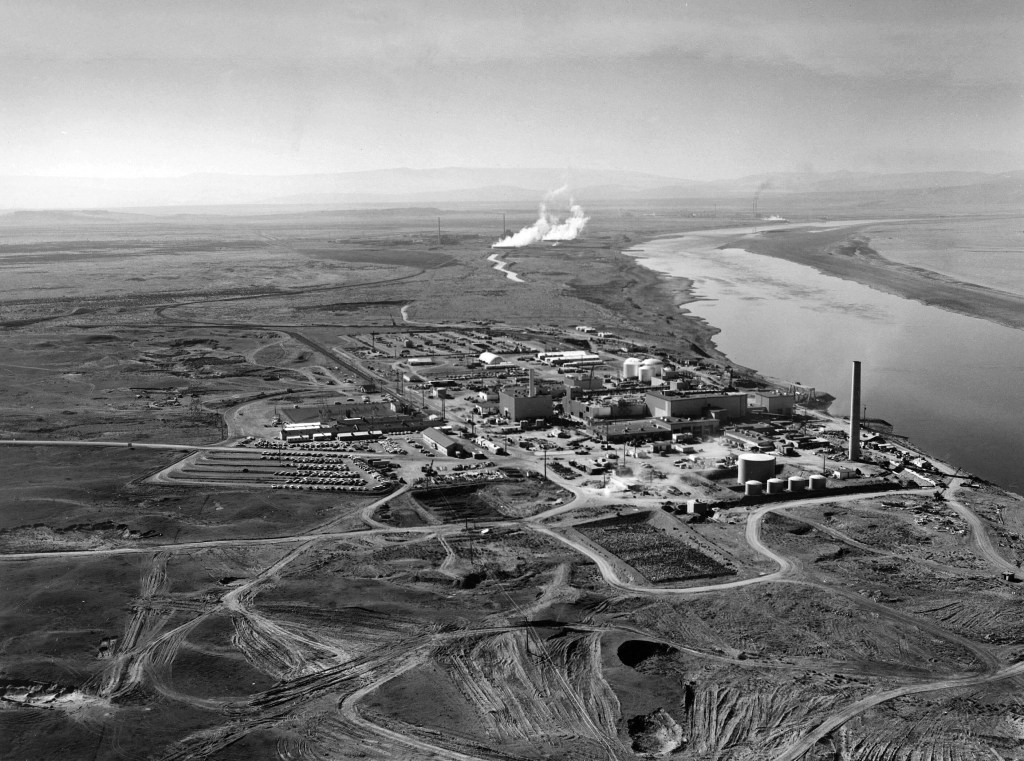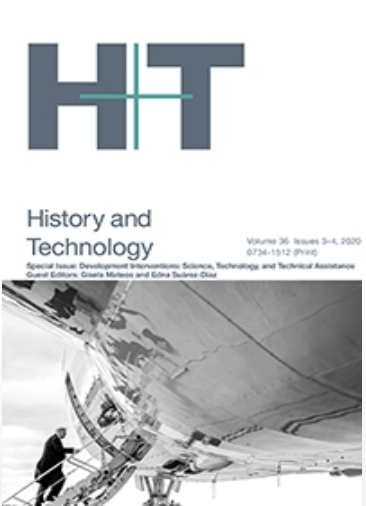 I’m delighted to be part of this Downwinders Project at Oregon State University. I’m posting the call for papers of an event to be held in June 2019, but please visit the site dedicated to that project too.
I’m delighted to be part of this Downwinders Project at Oregon State University. I’m posting the call for papers of an event to be held in June 2019, but please visit the site dedicated to that project too.
Call for Papers
Workshop: “Ways of Knowing and Radiation Exposure.”
June 19-21, 2019 (Wednesday, Thursday, and Friday)
It is our pleasure to invite proposals to the workshop, “Ways of Knowing and Radiation Exposure.” This workshop is organized by Jacob Darwin Hamblin and Linda M. Richards at Oregon State University (OSU). It is part of National Science Foundation Award #1734618, “Reconstructing Nuclear Environments and the Hanford Downwinders Case,” and is a collaborative effort between Environmental Arts and Humanities, History of Science, Medical Humanities, and the Special Collections and Archives Research Center. It is one of three workshops planned between 2018 and 2020.
2019 Theme: “Ways of Knowing and Radiation Exposure”
In what ways have individuals and communities “known” about radiation exposure? The ways of assessing, investigating, and ultimately understanding human and environmental contamination have differed among historians, public health officials, victim advocacy groups, uranium miners, health physicists, politicians, Tribal leaders, engineers, epidemiologists, and computer scientists, to name a few. What kinds of concepts, methods, worldviews, and techniques have shaped thinking, and what kinds have been cast aside? What is at stake in such ways of knowing?
We pose such questions because the histories of so-called downwinders continue to be contentious today. They are inseparable not only from controversies about historical exposures but also from uncertainty about sources of contamination in rivers, air, groundwater, and soil, and from continued disagreement about the dangers from low doses of radiation.
We invite proposals to our workshop to encourage reflection on the diversity of outlooks among scientists, physicians, and others who have sought to understand the connections between nuclear sites, bomb tests, the natural environment, and human life. The workshop is designed to bring scholars together with others who have lived experience connected to the topic, and to deepen all of our understanding of the diversity in concepts, methods, and values, including indigenous ways of knowing, and scientific differences across disciplinary or national contexts.
By “workshop,” we mean a gathering of presentations and conversations geared toward helping one another improve the quality of scholarship and public discourse. We are soliciting proposals in two distinct groups, with an eye toward mixing academic and non-academic participants:
- Historians and other humanities or social science scholars. We welcome proposals from historians of science, STS scholars, environmental historians, and others familiar with the historical dimensions of public health and environmental exposure. The topic should explicitly draw on the proposer’s own research, and address a question pertinent to the workshop theme. The proposer should hold a Ph.D. in a relevant field, or be a Ph.D. student in a relevant field. The proposal should be original, with the idea that it could be developed as a peer-reviewable essay. (as an example, essays from our first workshop are currently being submitted as a special issue of Journal of the History of Biology).
- Individuals whose personal and/or professional lives can shed light on this work. We are especially interested in engaging with discourse outside the academic world, among communities suffering from exposure or studying effects of exposure. The participant should be prepared to speak about the subject and participate in the discussions throughout the workshop. The participant should indicate whether s/he would be willing to have a transcription made of the presentation, and if s/he would be willing to be interviewed for the project (these are not required but it will help us to think about how to organize the workshop).
Proposal topics need not deal specifically with the Hanford Downwinders case. We would like to draw insights from those familiar with the history of radiation exposure in other historical contexts and in other parts of the United States and wider world. Please note the opportunities to conduct research while at OSU, particularly in the new collection related to the Hanford Downwinders and in existing collections related to nuclear issues (see below).
Practical details
Date of workshop: June 19-22, 2019
Deadline for submission: February 15, 2019
Costs: We anticipate defraying most of the costs of travel for participants in the workshop, within the limits of our grant funding.
Any initial queries to jacob.hamblin@oregonstate.edu and
Submissions to: downwinders@oregonstate.edu
What to submit: a) an abstract of one page or less explaining the topic/theme of your contribution, including mention of specific events that will feature in your contribution (see above for overview of the two different kinds of contributions); b) a paragraph biographical sketch
Please review the grant overview before sending a proposal.
Research Opportunities
While at OSU, workshop participants will be encouraged to make use of our extensive holdings at the Special Collections and Archives Research Center, which include:
*The new Berger/Haber Hanford Nuclear Reservation Downwinder Case Collection, including several boxes related to the Hanford Environmental Dose Reconstruction Project
*The Ava Helen and Linus Pauling Papers
We look forward to seeing you at the workshop!
Sincerely, Jake Hamblin and Linda Richards




Leave a comment